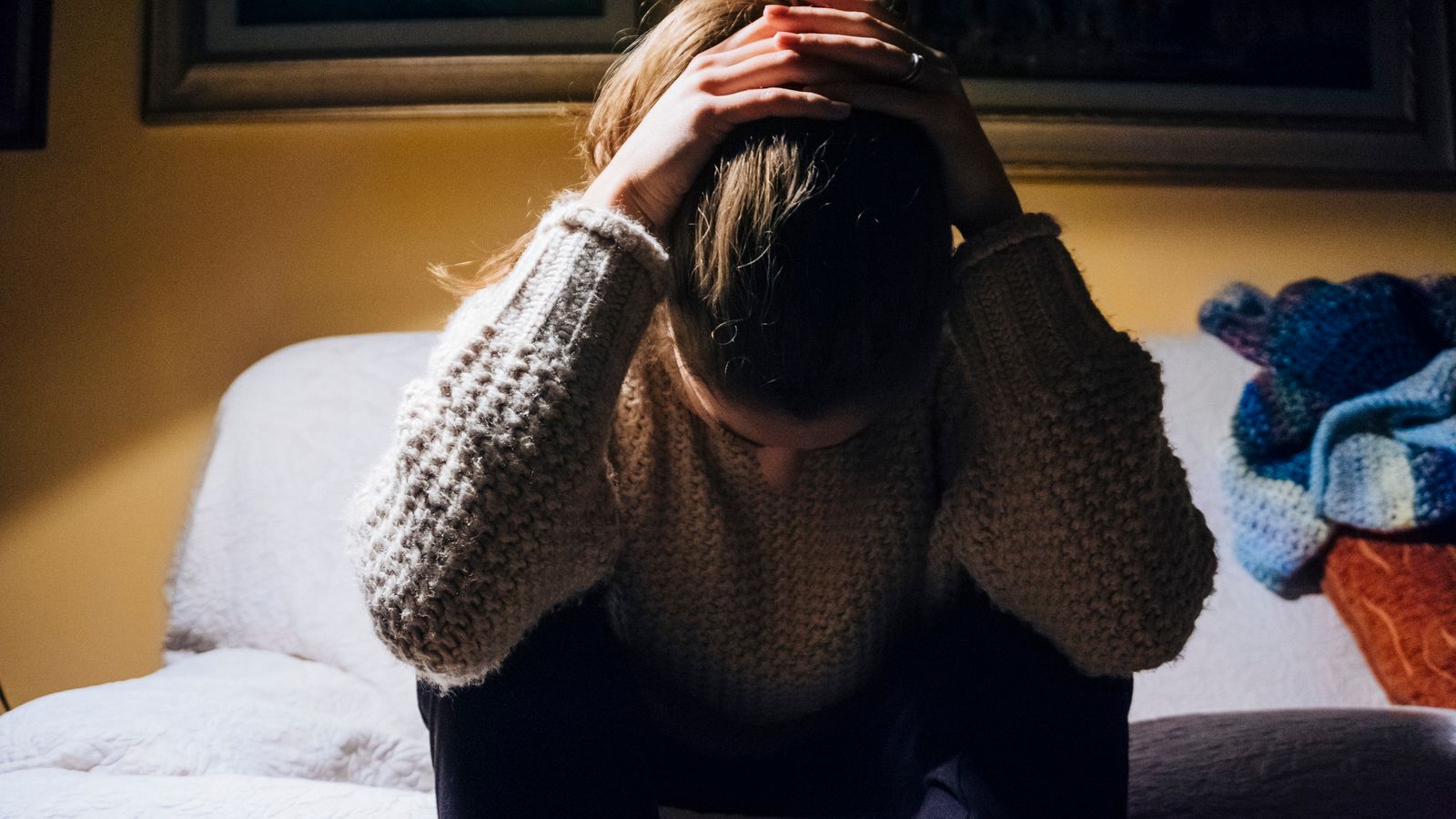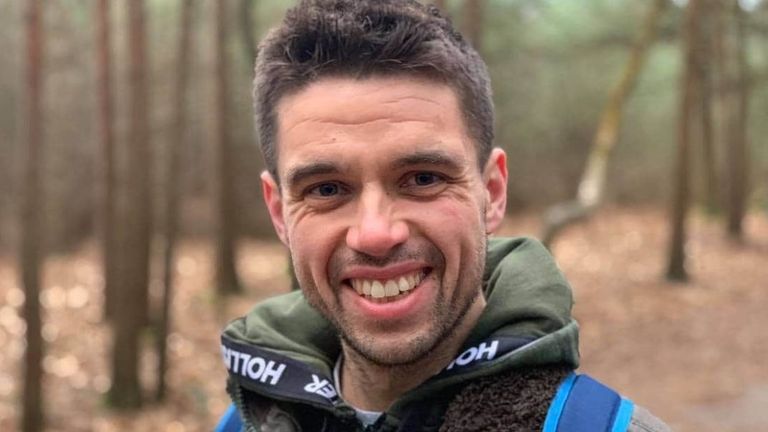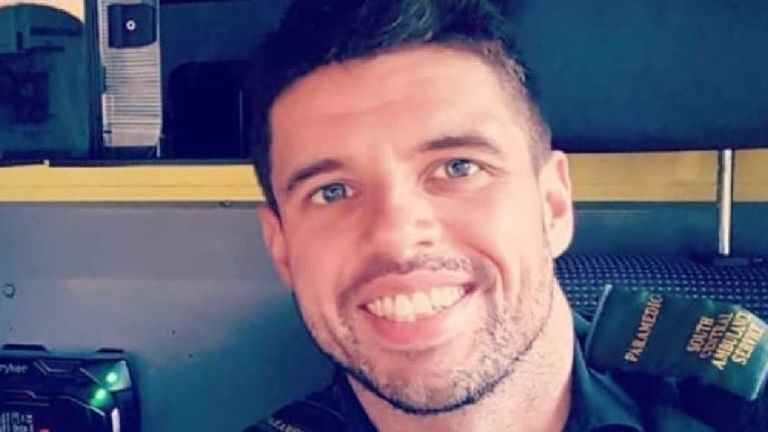Psychiatrists are braced for a surge in demand for mental health care in the months ahead, as people struggle to cope during the coronavirus lockdown.
The number of people experiencing severe mental illnesses and needing urgent care amid the pandemic has become a serious cause for concern, the Royal College of Psychiatrists has told Sky News.
The group, which represents the UK’s 18,000 psychiatrists, said members are concerned about the impact of the second lockdown and are calling on the government to ensure mental health services are properly funded and equipped to meet the anticipated increase in demand.
“As a result of COVID we are now seeing an increase, particularly in some parts of the country, in people attending emergency departments and presenting to crisis mental health services,” said Dr Adrian James, president of the Royal College of Psychiatrists.
“We’re also seeing an increase in the numbers of people, but also in the severity of their disorder and this is a very common thing that is being reported up and down the country.”
When lockdown restrictions were announced on 23 March, Christopher Ealden’s family said he felt “isolated from the world”.
The 35-year-old paramedic, who worked at South Central Ambulance Service, had no history of mental health issues. He was found dead in July, leaving behind his devastated family.
“I miss ringing him and talking to him. I miss having a laugh with him. There are no words. I feel empty,” said his sister Samantha Lovell.
“He was my only brother, my only sibling. I feel like half of me has gone as well. I can hear his voice in my head.
“He used to do a lot of things, which includes going to the gym – which was his release – but because of lockdown he had nowhere to escape everything that was going on. I just think it all got too much for him.”
Four months on, Christopher’s sister has found the strength to share his story in the hope it saves other lives.
For Samantha, the most difficult day of the lockdown was 25 July, when she said her final goodbye to her brother who died in hospital.
“I didn’t want to leave that room. I remember going in there and I was holding his hand. I was talking to him. I told him I loved him,” she said.
“I gave him a kiss on the head and laid my head on his chest and just hearing his heart beating for the final time.”
Christopher was found by his mum, whose life changed in seconds. There were few signs he was thinking of ending his life.
“This is something you read about happening to other people. He was an NHS hero. A paramedic. He was my hero. He always will be,” Samantha added.
“The lockdown took away his coping mechanisms. It took away his life and everything that he did when he was feeling down, he could no longer do anything.”
In a survey of 389 psychiatrists, carried out in June by the Royal College of Psychiatrists, 46% said they had seen a rise in workload involving emergency interventions and 55% also reported an increase in the number of patients needing urgent interventions.
Dr James added: “We need to give people the services that they deserve.
“If you’ve known somebody who’s had a mental illness, you will know the suffering that it causes, but also that if people get treatment, it can be life changing.”
Exclusive figures shown to Sky News by Wirral-based charity The Martin Gallier Project show the number of people struggling with depression and suicidal thoughts “doubled” from last year.
During the pandemic, the charity says it supported 1,024 people between February to November compared with 400 between February 2019 to February 2020.
Police forces are also reporting an increase in the number of incidents involving people suffering from mental health crises.
“Since the outbreak of the pandemic, I have raised serious concerns about the consequences that necessary restrictions could have for vulnerable people,” said Chief Supt Paul Griffiths, president of the Police Superintendents’ Association.
“Taking away ‘the norm’, restricting movement and limiting social contact has profound implications.”
A Department of Health and Social Care spokesperson said: “We are working with experts from the NHS and public health to assess what help and support people might need to maintain their mental health over the coming months and we will bring forward our winter plan for mental health and wellbeing in due course.”
Anyone feeling emotionally distressed or suicidal can call Samaritans for help on 116 123 or email jo@samaritans.org in the UK. In the US, call the Samaritans branch in your area or 1 (800) 273-TALK.




